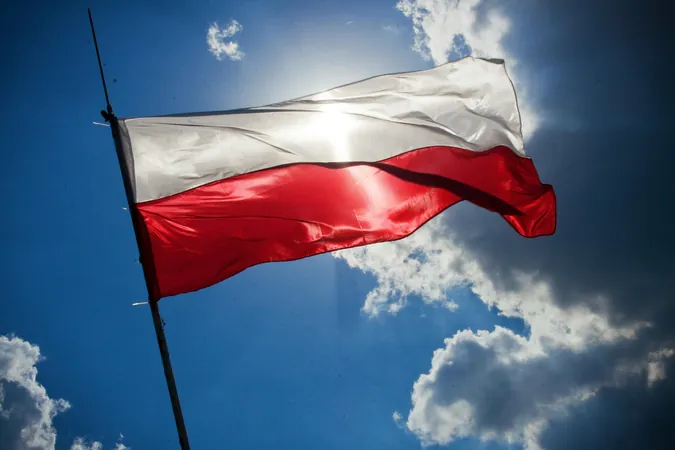
Shared Stories, Divergent Feelings: Exploring Polish Migration Narratives in Germany
2025-08-19
Author: Wei Ling
A Complex Journey of Migration
Migration can unite or divide families, and this is especially true for Polish families in Germany. A recent study by researchers Paula Pustułka and Zuzanna Kapciak from SWPS University reveals how parents and their adult children construct their migration narratives—sometimes in synch and other times with sharply different emotional perspectives.
The Polish Diaspora in Germany
With over 870,000 Polish citizens and more than two million individuals with Polish migration backgrounds residing in Germany, this community forms the second-largest ethnic group in the country. Yet, Polish migrants remain relatively underexplored, particularly regarding the nuanced experiences shaped by gender and generation.
Understanding Generational Perspectives
To delve deeper into these generational relations, Kapciak and Pustułka conducted interviews with 22 Polish family members in Germany, comparing the experiences of parents who migrated around 25 years ago with those of their adult children, aged 18 to 29. Their findings highlight intriguing similarities and differences: while family migration stories tend to maintain core events, the emotions attached can vary widely.
For example, children who migrated as minors often express feelings of agency deprivation—many resisted leaving Poland but were overshadowed by parental decisions. In contrast, those born in Germany don’t typically share such anxieties.
Gendered Migration Motives
Interestingly, the motivations for migration often differed by gender. Women frequently cited emotional drivers such as love and family reunion, while men prioritized economic opportunities and career advancement, viewing Germany as a better avenue for fulfilling traditional provider roles.
Youths Play a Crucial Role in Family Narratives
A striking revelation from the study is the active participation of younger generations in shaping family migration stories—both those born in Germany and those who arrived as children are deeply aware of their families' histories. However, it’s also noted that negative evaluations of migration experiences often stem from personal family struggles, such as breakups or integration issues.
Navigating the Challenges of Migration
Kapciak suggests that to better navigate these challenges, migrant families should seek various forms of support—be it psychological, legal, or social. Preparing children for the migration experience and providing consistent support are crucial during the tumultuous early days in a new country.
Migration: A Continuous Process
The findings emphasize that migration isn't an isolated event but an ongoing journey that unfolds over generations. Family narratives of migration can foster connections but may also breed resentment. This understanding is vital for grasping contemporary migration trends in Europe.
Transnational Ties Persist Beyond Borders
Moreover, young Polish migrants in Germany maintain robust emotional and practical connections to Poland, often regarding their bicultural identities as assets. Their ability to speak Polish plays a significant role in bridging gaps in education and employment.
Implications for Polish Migration Policies
The implications of this study extend to migration policies in both countries. It underscores the importance of viewing young Polish migrants as vital conduits for fostering transnational relationships. Furthermore, the study calls for more nuanced integration strategies that consider the rich familial and intergenerational narratives shaping their identities.


 Brasil (PT)
Brasil (PT)
 Canada (EN)
Canada (EN)
 Chile (ES)
Chile (ES)
 Česko (CS)
Česko (CS)
 대한민국 (KO)
대한민국 (KO)
 España (ES)
España (ES)
 France (FR)
France (FR)
 Hong Kong (EN)
Hong Kong (EN)
 Italia (IT)
Italia (IT)
 日本 (JA)
日本 (JA)
 Magyarország (HU)
Magyarország (HU)
 Norge (NO)
Norge (NO)
 Polska (PL)
Polska (PL)
 Schweiz (DE)
Schweiz (DE)
 Singapore (EN)
Singapore (EN)
 Sverige (SV)
Sverige (SV)
 Suomi (FI)
Suomi (FI)
 Türkiye (TR)
Türkiye (TR)
 الإمارات العربية المتحدة (AR)
الإمارات العربية المتحدة (AR)